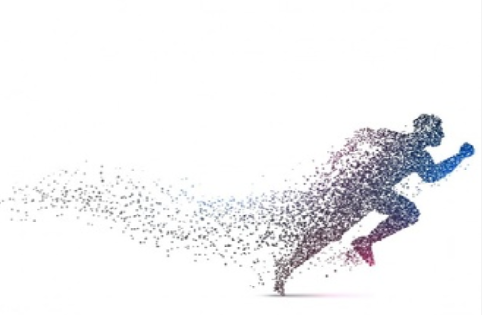The Role Of AI In Transforming The Sports Industry
- November 24, 2019
- Posted by: admin
- Category: Artificial Intelligence

Role Of AI In Transforming The Sports Industry
The movie Moneyball had shown how data-driven decisions can enhance the performance of a team that lacks proper resources. But it is not merely a reel projection, for data analytics and AI in sports has proved to be a game-changer for real.
Sports without technology cannot help any team stay ahead of their game, and we are going to see some examples of how AI in the sports industry has cast a transformative spell.
Improving training and performance
Earlier data related to each match used to be recorded manually at every step. Inspecting each second of video footage to gather performance data led to a humongous effort. But now using wearable devices embedded with AI technology, the situation has changed entirely.
Studies have shown that AI can improve the team and individual performance by 28% and 17% respectively. (Source)
For instance, each player’s performance in a basketball match can now be monitored and analyzed from data collected by stride sensors and fitness trackers in their sneakers. Being able to spot their strengths and weaknesses, from the gathered data will, in turn, be helpful in training.
Better recruitment and game strategy
Acquiring the right talent from the pool is crucial for a team’s performance. With AI sports predictions using predictive analytics, selectors can now make informed decisions which again adds to the performance of a team.
AI helps teams to make plans for team formation, game strategy and much more. Teams can even derive valuable insights by analyzing their competitors’ games and formulate their own strategies accordingly.
Ensure the fitness and safety of players
AI has had incredible predictive and diagnostic advantages in the healthcare sector that can be put to great use in maintaining the health and fitness of players. Sports teams invest in AI today and use tech-enabled tools in their medical kit. This way they can better ensure that their players are in peak health condition, both physically and mentally. AI-empowered tools can now predict the possibilities of injuries resulting from stress. AI sports nutrition can even detect the onset of fatigue in players. The various health parameters of the players’ are also continuously monitored using wearable tech tools.
Maximize fan engagement
A lot of parameters are considered when it comes to keeping the fans happy. And when fans are happy, the sports teams can easily expect better and much higher revenues. Starting from a smooth and easy ticket buying experience and top-notch performance by their players to car parking facilities at the game venue and even gaining access to star players – all these things cumulatively affect the fan psyche. And going by the current Artificial Intelligence trends the best times to broadcast matches based on crowd sentiments, and post advertisements for maximum engagement are also being used to great benefit today.
As AI tends to bring in more reliability in sports management, it is incorrect to assume that sports might become predictable in the future. The streak of uncertainty in sports is what will keep driving the evolution of AI in sports and help businesses flourish.
